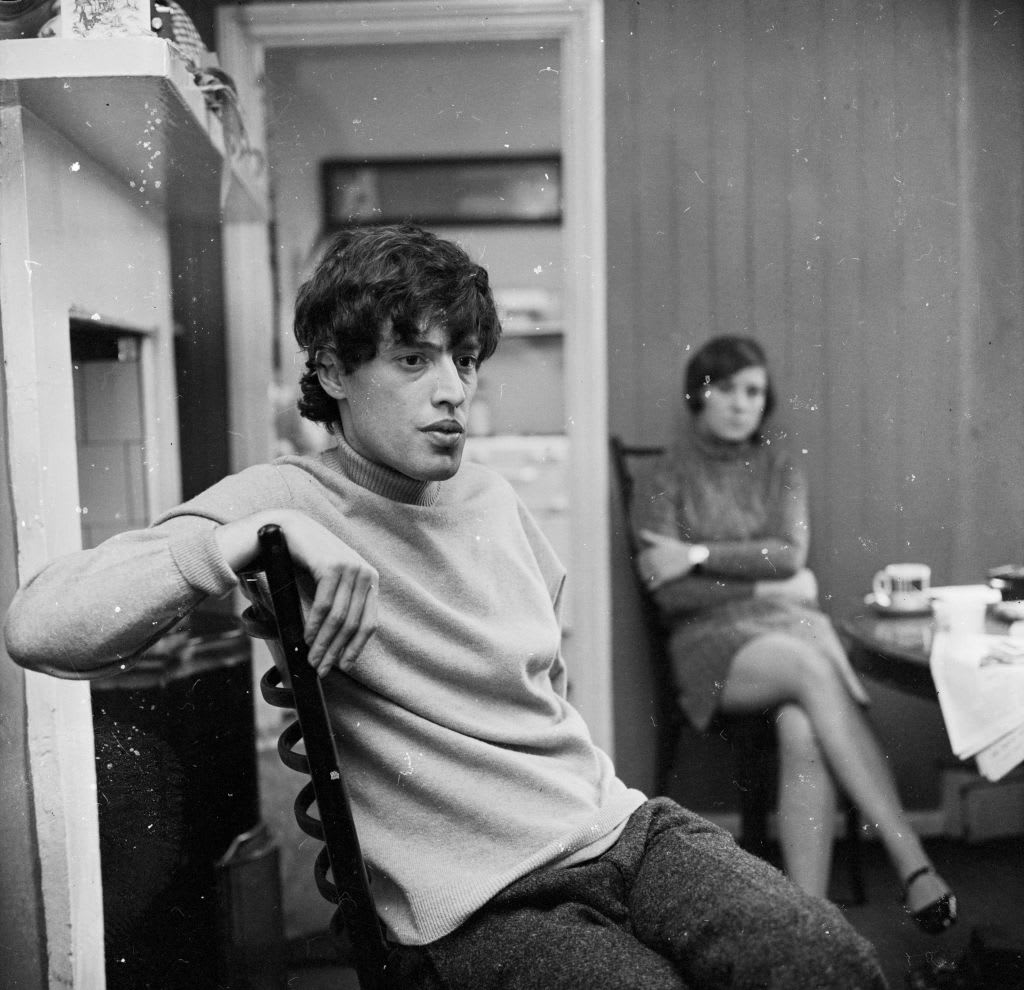Tom Stoppard's passion
Tom Stoppard's writing is known for its cleverness, its sophistication and, most of all, for its verbal dexterity. Three decades after first conquering the London stage, he is now poised for one of American film's highest honors. This year, Stoppard is nominated with Marc Norman for an Academy Award for Best Original Screenplay for Shakespeare In Love. CBS News Sunday Morning's Eugenia Zukerman talked to him about theater, film and the joy of writing.
A great story demands a great storyteller, and for the movie Shakespeare in Love, celebrated playwright Tom Stoppard fit the bill. With co-writer Marc Norman, Stoppard revealed Shakespeare the man behind Shakespeare the icon.
"It's the whole essence of genius that it transcends one's ideas of what is normal and possible," Stoppard says. "He's our greatest writer, there's no question about that."
Shakespeare in Love is an imaginary tale of what might have happened to the young Shakespeare as he began writing a play called Romeo and Ethel, The Pirate's Daughter.
"We knew all along that the real center of the story is the way that Will Shakespeare, who at the beginning is trying to write a comedy, is guided by the events of his own emotional life into writing the greatest love tragedy ever written," Stoppard says.
"The main pleasure is that this relatively small romantic comedy which we had a lot of faith in was delivered in the form which it was meant to have," he says. "It was intended to be a film of wide appeal."
Both audiences and awards have been bountiful. "I mean, I never saw so much hoopla," declares Stoppard. "It is quite thrilling. It's sometimes quite overwhelming. Judi Dench was saying the other day that she'd heard about the red carpet and all that, but she had no idea that it was such a long carpet."
Stoppard has lived in London since he was 20. Walking past the National Theater, he says, "I've had a lot of great times in this great building."
London's National Theater has been home to Stoppard for more than three decades, from Rosencrantz and Guildenstern are Dead to last year's The Invention of Love.
"Before I ever had a play put on, and I just wanted to be a playwright in a completely vain aspect," says Stoppard, "it seemed to me that having a play on at the National Theater, for example, was some kind of Everest which only a few could ever even hope to aspire to." He continues, "The first time I had a play on at the National Theater, I sort of stood at the back and I just thought, 'I see, now I get it.' It actually turns out to be something which can happen to people like me, not only to people like them. So you make this adjustment, you don't suddenly feel that you've joined the pantheon. If anything, the mountain has simply shrunk to a point where you can just step on it and think, 'oh, how disappointig'."
Gwyneth Paltrow, a nominee for a Best Actress Oscar for Shakespeare in Love, says it was an honor to work with Stoppard: "The fact that Tom has the facility to use language like this so cleverly and so funnily, and the fact that English is his third language, is just extraordinary," she says.
For decades, Tom Stoppard has been thought of as one of England's greatest playwrights. In fact, Tom Stoppard was born Tom Straussler in Zlìn, Czechoslovakia. His family fled to Singapore from the Nazis when he was only two years old. Then, the Japanese entered the war.
Stoppard recalls, "When the Japanese entered the Second World War and they were converging on Singapore, the women and children were put on boats, and I think that the boat we were on was supposed to go to Australia but in fact didn't and went to India. And the consequence was that my Czech father was killed in Singapore. He was on a boat which got bombed and so on, but he died during the next few weeks really."
He and his mother stayed on in India after his father's death. It was only in 1946 that he arrived in England. There, his mother married a British Army officer named Kenneth Stoppard.
Many thought Stoppard's screenplay for Stephen Spielberg's film Empire of the Sun was based on those early personal experiences. But Stoppard adapted the story of a young boy in a Japanese concentration camp from a novel by J.G. Ballard.
Stoppard has yet to write an autobiographical work. He says, "When the regime started to crumble in eastern Europe, I began to find out much more about my own personal background than I'd ever known before."
For instance, he found out that his mother had downplayed their Jewish heritage. "She had a completely practical sense which I think was misplaced," says Stoppard, "that bringing her two little boys to England, she felt we would have had a hard time at school if we were Jewish. I think she was completely wrong." And, Stoppard reflects, "I never really gave that a lot of thought until I was grown up."
Has it changed his identity, his feelings about who he is? "You know it hasn't. I've always sort of felt I knew who I was," he says. "And documentary evidence hasn't really affected that."
In fact, says Stoppard, "I was vaguely pleased when I found out. But it's too late to pretend that somehow you're different because you've learned something. I mean you are what you are.
Of course, in theory it should alter one's attitude toward the Holocaust. But one's attitude is horrified anyway, so I don't know that I particularly felt it was more personal."
Stoppard's lay Indian Ink is currently having its American premiere in San Francisco, with Stoppard hoping to follow up on the American success of earlier plays such as The Real Thing and Arcadia.
Stoppard has always been intellectually stimulating. His critics, however, have found his work emotionally inaccessible.
Stoppard says he doesn't worry about it, "because I don't really buy into the idea that to do 'X,' let's say, emotional accessibility, is somehow better than doing 'Y,' which is discussion of some intellectual or metaphysical ideas. I don't sort of think of one as being somehow the failure or the compensation for the other. People, they are what they write rather than they are what they eat. And you can't really do anything unless you're expressing your true self. And for better or worse, you're stuck with it."
John Madden, director of Shakespeare in Love, doesn't find the writer's work inaccessible. He'll tell you, "At the heart of Stoppard's work is heart, actually."
Madden trusted Stoppard's ability to take on William Shakespeare. "There are few writers who could get away with putting words into that man's mouth, in my view, and he's certainly one of them," Madden says. " It's just a sort of effortless appropriation of the idiom that manages to render the language and the experience in the film extremely modern and yet completely true to the writing and the ear he's dealing with."
A great love of the theater is evident in Shakespeare in Love. That love - the fire, the passion, the great tradition - continues from Shakespeare to Stoppard.
"I think that it can take you out of yourself. It can make you forget where you are. Even if it does so for a few seconds, it's intensely valuable to your life," " Stoppard says. "The mind has these precious periods of a sort of free fall where you begin to experience what you're looking at and this is presumably true of looking at paintings, listening to music and presumably, one might say it perhaps defines it as art."
©1999 CBS Worldwide Corp. All rights reserved. This material may not be published, broadcast, rewritten, or redistributed




